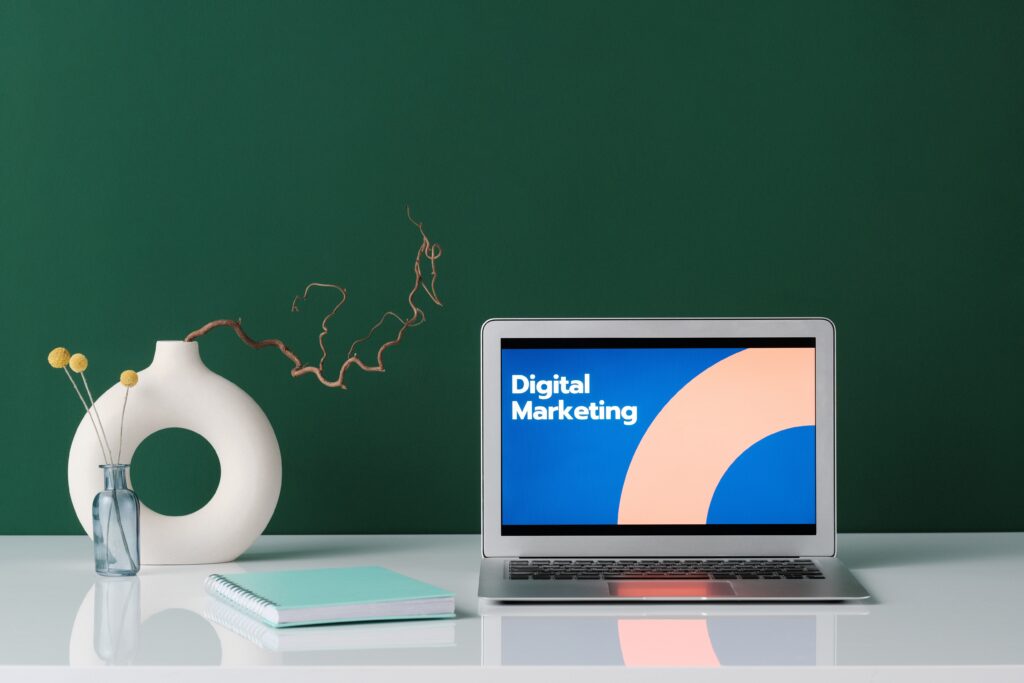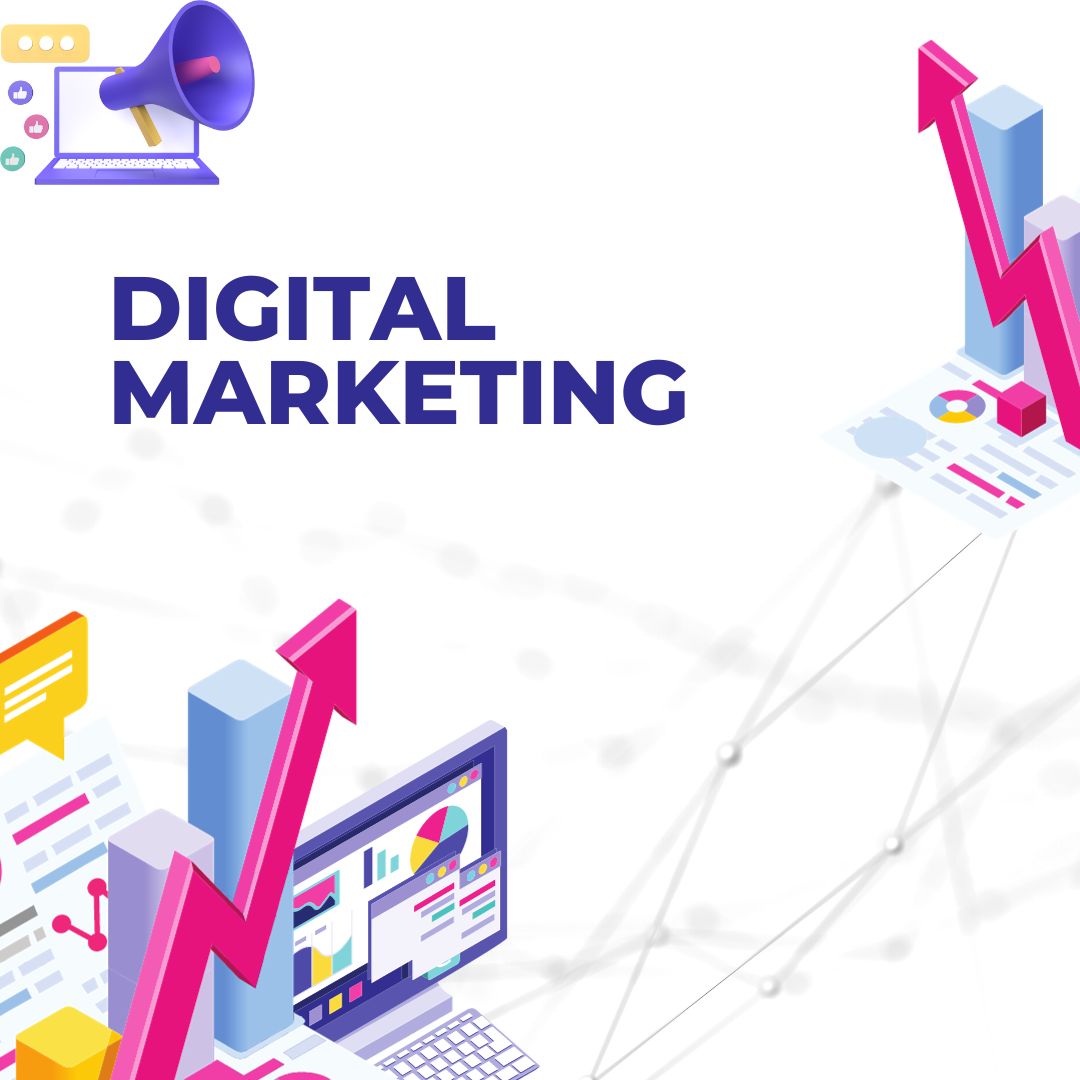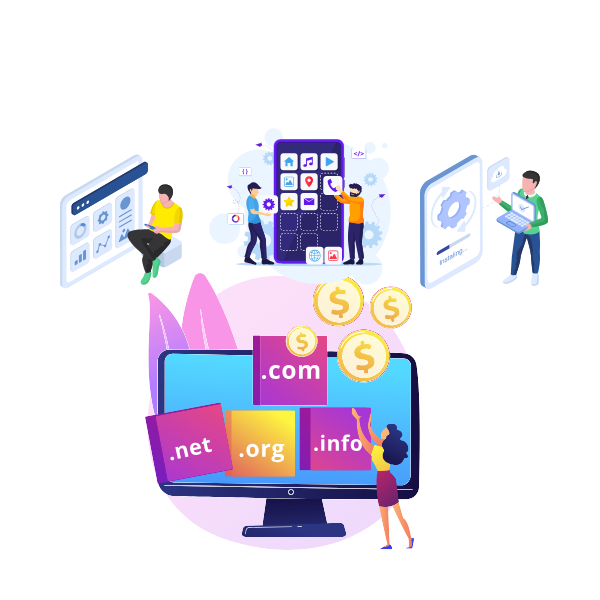Introduction:
In today’s interconnected world, where people spend a significant portion of their time online, digital marketing has become an essential tool for businesses seeking to thrive and succeed.
This dynamic and ever-evolving field offers a plethora of opportunities to engage with customers, build brand awareness, drive sales, and foster long-term customer relationships.
In this article, we will explore the fundamentals of digital marketing and provide insights into effective strategies for achieving success in the digital realm.

Understanding Digital Marketing:
Digital marketing surrounds most of the marketing attempts that employ digital channels, platforms, and technologies to connect with likely consumers.
It involves a wide range of activities, including website optimization, search engine marketing, social media marketing, content marketing, email marketing, and more.
The key advantage of digital marketing lies in its ability to target specific audiences, track performance, and optimize campaigns in real time, enabling businesses to achieve higher levels of efficiency and effectiveness.

Developing a Solid Digital Marketing Strategy:
To achieve success in the digital landscape, businesses must develop a well-defined digital marketing strategy. This strategy should align with overall business goals, target audience preferences, and industry trends. Here are some essential steps to consider when crafting a digital marketing strategy;

1. Identify Objectives: Clearly define what you aim to achieve through your digital marketing efforts. Is it to increase brand awareness, generate leads, drive website traffic, or boost sales?
2. Know Your Audience: Conduct thorough market research to understand your target audience’s demographics, interests, online behavior, and preferences. This knowledge will help tailor your digital marketing campaigns to resonate with your audience effectively.

3. Select the Right Channels: Choose the digital channels that align with your target audience’s online presence. Consider platforms such as search engines, social media networks, email marketing, mobile apps, and content distribution networks. Every passage demands a distinctive approach and content plan of action/policy.
4. Create Compelling Content: Engaging and valuable content lies at the core of any successful digital marketing campaign. Develop content that educates, entertains, or inspires your audience, and optimize it for different digital channels.

5. Implement Search Engine Optimization (SEO): Enhance your website’s visibility in search engine results by optimizing it for relevant keywords, improving website structure and loading speed, and securing high-quality backlinks.
6. Embrace Social Media: Leverage the power of social media platforms to build brand awareness, engage with your audience, and drive traffic to your website. Develop a consistent and authentic brand voice across various social channels.

7. Leverage Email Marketing: Build an email list and nurture relationships with your subscribers by delivering personalized and relevant content. Use email automation tools to streamline campaigns and track performance metrics.
Low Budget and Professional Offers/Services in Digital Marketing
Great Offers/Services for SEO work
Analyze and Optimize:
Regularly monitor key performance indicators (KPIs) and analyze the data to gain insights into your campaign’s effectiveness.

Conversion Rate Optimization (CRO):
Optimizing websites and landing pages to improve the rate at which visitors convert into customers or take desired actions.
Mobile Marketing:
Reaching and engaging users on mobile devices through mobile apps, SMS marketing, or mobile advertising.

Analytics and Data-Driven Marketing:
Collecting, analyzing, and leveraging data to make informed marketing decisions and optimize marketing strategies.
Digital marketing offers businesses a cost-effective and measurable way to target specific audiences, track campaign performance, and adjust marketing strategies based on real-time data. It enables businesses to reach a global audience, personalize marketing messages, and engage with customers at various stages of the customer journey.
Email Marketing:
Sending targeted emails to subscribers or customers to promote products, share information, or nurture leads.

Influencer Marketing:
Collaborating with influential individuals or content creators with a large following to promote products or services to their audience.
The Importance of User Experience:
Digital marketing success is closely tied to providing a seamless and delightful user experience. Invest in user-centric website design, mobile optimization, intuitive navigation, fast loading speeds, and responsive customer support. Prioritize user experience to increase engagement, reduce bounce rates, and encourage repeat visits and conversions.

Embracing Emerging Technologies:

To stay ahead of the competition, digital marketers must stay abreast of emerging technologies and trends. Artificial intelligence (AI), chatbots, voice search, augmented reality (AR), virtual reality (VR), and machine learning are reshaping the digital marketing landscape. Explore how these technologies can be incorporated into your strategy to enhance customer experiences and gain a competitive edge.





[…] Digital Marketing […]
[…] Digital Marketing […]
[…] Digital Marketing […]
[…] Digital Marketing […]
[…] Digital Marketing […]